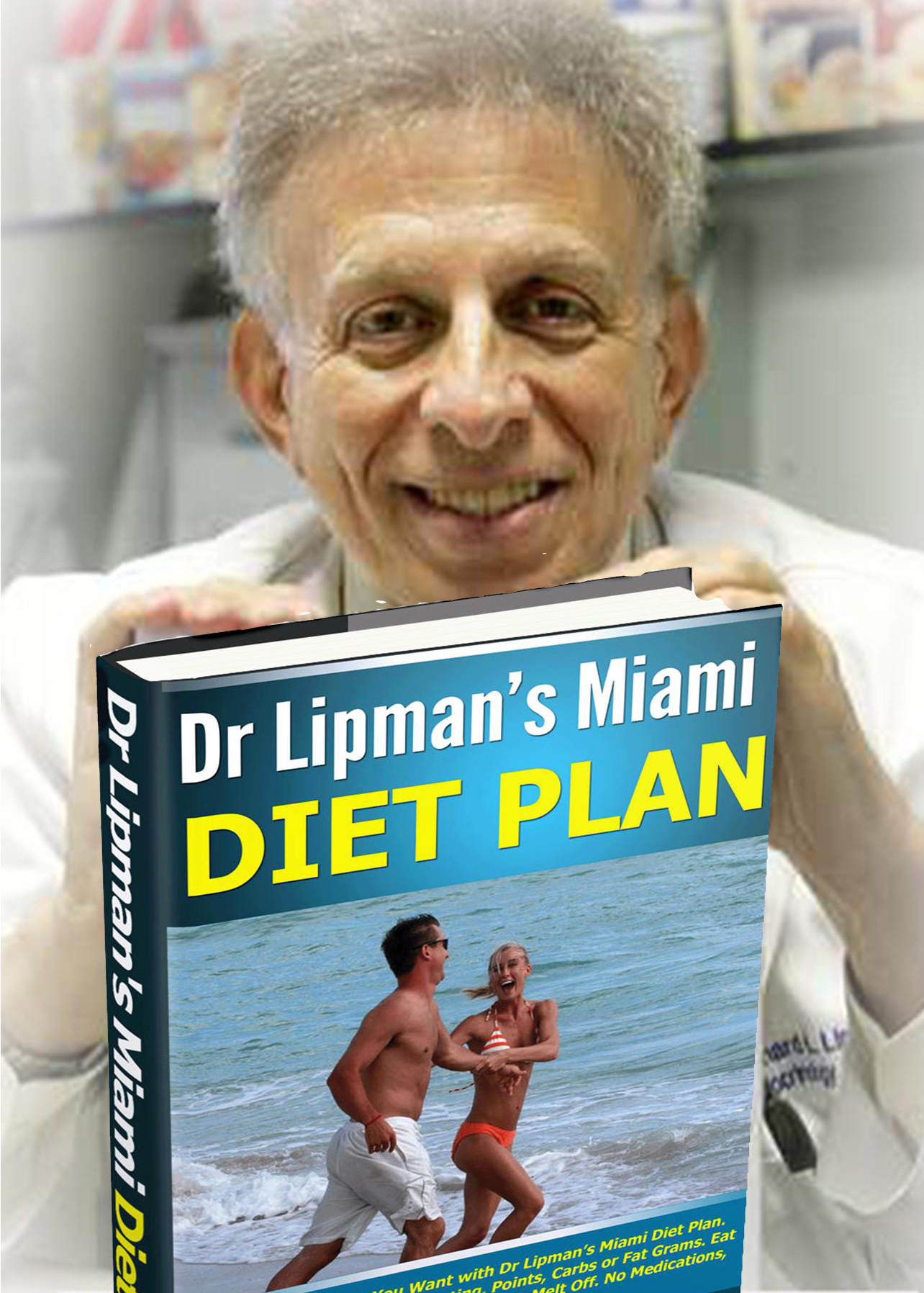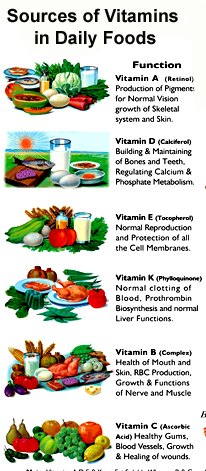The 100 Calorie Secret is Turning The Diet Industry Upside Down. A Weight Loss Doctor Finally Reveals the Secret of How to Lose Weight Without Dieting Ever Again Lose 10, 20, 30 and More Pounds Right Now!
Watch Dr. Lipman on CBS-TV
Diplomat of American Board of Internal Medicine
Endocrinology & Metabolic Disorders
Anti-Oxidants, Supplements & OTC Diet Products Do NOT Help Weight Loss
305-670 3259
Confusing weight loss with the need for antioxidants, massive vitamin supplements and detox plans only cause loss of focus for people trying to lose weight and no sustainable weight loss at all. They also maybe dangerous. Read the Evidence Yourself
"Anti Oxidants Supplements Prevent Metabolic Benefits of Exercise"
(May 2009, Proceedings of the National Academy of Science) found that Vitamin and dietary supplements provide no significant benefits. The authors noted that exercise promotes longevity and ameliorates type 2 diabetes mellitus and insulin resistance but taking antioxidant supplements prevents this improvement.
Anti-oxidants including vitamins A, C, E and beta carotene are thought to slow down the effects of aging by neutralizing free radicals that cause cell damage. They may also prevent cancer. One would think that we should consume as much as of them as possible. The problem is that although the antioxidants that occur in nature from the foods we eat, may not be the same in the supplement form. Once thought to be harmless, they appear to be toxic at high levels. (Previous post on anti oxidants and health)
The American Heart Association, and the Food and Nutrition Board of the National Academy of Science does not recommend using antioxidant supplements "until more complete data are in," They conclude that Vitamin C, vitamin E, selenium, and beta-carotene should come from food, not supplements
Vitamin E is found in vegetable oils, walnuts, peanuts, almonds, seeds, olives, avocado, wheat germ, liver, and leafy green vegetables. It protects the membranes that safeguard our cells from damage.
Vitamin C is in to citrus fruits like oranges and grapefruit as well as broccoli, leafy green vegetables, tomatoes, peppers, potatoes, cantaloupe, and strawberries. It scavenges free radicals that are in watery environment, such as inside your cells.
Beta-carotene is found in cantaloupe, mangoes, papaya, pumpkin, peppers, spinach, kale, squash, sweet potatoes, and apricots. It protects energized oxygen from attacking our cells.
Selenium is in seafood, beef, pork, chicken, Brazil nuts, brown rice, and whole wheat bread It is also protects cells from energized oxygen.
Anti-oxidants may not prolong your life, but in fact may actually be harmful says all of the recent evidence.They certainly do not help any weight loss program.
Jane E. Brody a science writer for the New York Times writes about the emerging scientific evidence that there is little benefit from taking Vitamin E or C in her March 24, 2009 article in the New York Times. She carefully reviews all of the emerging evidence that antioxidants may actually increase heart failure and not protect against strokes or heart attacks.
She notes that recent studies over the past 4 years have demonstrated no benefit in preventing any forms of cancer or helping Alzheimer’s disease. She ends her review: “If only all those hopeful forecasts had turned out to be true. Just as a well-designed clinical trial disproved the notion that postmenopausal hormones could keep women heart-healthy, controlled clinical trials of vitamin E have found this supplement wanting, as well. The same is true of another antioxidant, vitamin C. Simply put there is no quick fix.”
More About Antioxidants:
Much as been written about the actions and benefits of anti-oxidants, but these studies are among first critical evaluations. Here is a summary of other studies reported by the National Cancer Institute's Fact Sheet:
"Massive large-scale clinical trials published in the 1990s reached differing conclusions about the effect of antioxidants on cancer. The studies examined the effect of beta-carotene and other antioxidants on cancer in different patient groups. However, beta-carotene appeared to have different effects depending upon the patient population. The conclusions of each study are summarized below.
• The first large randomized trial on antioxidants and cancer risk was the Chinese Cancer Prevention Study, published in 1993. This trial investigated the effect of a combination of beta-carotene, vitamin E, and selenium on cancer in healthy Chinese men and women at high risk for gastric cancer. The study showed a combination of beta-carotene, vitamin E, and selenium significantly reduced incidence of both gastric cancer and cancer overall.
• A 1994 cancer prevention study entitled the Alpha-Tocopherol (vitamin E)/Beta-Carotene Cancer Prevention Study (ATBC) demonstrated that lung cancer rates of Finnish male smokers increased significantly with beta-carotene and were not affected by vitamin E.
• Another 1994 study, the Beta-Carotene and Retinol (vitamin A) Efficacy Trial (CARET), also demonstrated a possible increase in lung cancer associated with antioxidants.
• The 1996 Physicians' Health Study I (PHS) found no change in cancer rates associated with beta-carotene and aspirin taken by U.S. male physicians.
• The 1999 Women's Health Study (WHS) tested effects of vitamin E and beta-carotene in the prevention of cancer and cardiovascular disease among women age 45 years or older. Among apparently healthy women, there was no benefit or harm from beta-carotene supplementation. Investigation of the effect of vitamin E is ongoing."
1997 study published in the Journal of the American Medical Association found that 60 to 200 mg of vitamin E a day strengthened the immune system but 800 mg of vitamin E resulted in worse immunity than receiving no vitamin E at all.
This fact sheet also includes on going studies and those to be reported in the next few years.
Vitamin and dietary supplements provide no significant, if any health benefits. The answer is clear for the first time. In the February 9, 2009 issue of the Archives of Internal Medicine, Dr Neuhouser and 14 other researchers from over 10 medical centers across the United States report these results after following over 161,000 women for more than 8 years.
They found no evidence that taking dietary supplements including vitamins had any effect on lifespan, cancer, or heart disease. Dr Neuhouser, concludes the money is better spent on “buying more fruits and vegetables.”Like seeking organic or “healthy” foods, consuming vitamins and supplements also only distract the dieter from what is important--making better food choices and doing a little exercise. Most of us get all the
vitamins in the food we eat:
OTC Diet Pills Don't Work and They Can Harm You.
The FDA is investigating 28 over the counter pills claimed to produce weight loss. They found large amounts of prescription drugs mixed with the pills. “Consumers have no way of knowing that these products contain powerful drugs that could cause serious health problems” reports the FDA. 3x Slimming Power, Perfect Slim, Pro-Slim Plus, and Som o trim.
are some of the adulterated weight loss pills. Be suspicious of claims like “no-hunger,” “no exercise,” “fat burner,” or “metabolism booster.”
Brazilian Diet Pills Contain Amphetamines:
This FDA report follows a serious warning in 2007,concerning the Brazilian Diet pills–Emagrece Sim and Herbathin. Marketed as “dietary supplements,” they contained high doses of amphetamines, and the active ingredients in Librium and Prozac. They may be habit forming, and can cause anxiety, heart palpitations, drowsiness, dizziness and impair the ability to drive.
Brazilian Diet Pills Contain High Doses of Other Dangerous Drugs:
More information about drugs from Brazil was reported by Dr Pieter Cohen from Harvard Medical School in 2007. He reviewed the abuse of Fenproporex, the second most often prescribed amphetamine-based appetite suppressant. Fenproporex is known to be addictive and is rapidly converted into amphetamine in the body. The Internet and other illegal markets have made these drugs even more available.
"Natural" Does NOT Mean Safe:
What is the overweight individual to do when faced with the temptation to take these types of substance? Four things should come to mind:
1. “ Natural” and “herbal” are not necessarily safe. They are not effective, even if one could be sure that they are pure.
2. Any substance marketed as a " dietary supplement" should be suspect. There is little to no FDA regulation of these chemicals
3 Other than vitamins and minerals for children and pregnant women, no one needs "supplements."
4. There are NO safe and effective OTC Diet Pills in the first place.
The Only Safe and Proven Diet Pills:
If you do not obtain them with a prescription from a licensed physician following an office evaluation, don’t take them. They will not work and they can harm you.
The only safe and effective weight loss pills in the U.S. are controlled prescription drugs,which include phentermine, diethylpropion and phendimetrazine. If you are considering these drugs, seek a physician with skill in prescribing them.





